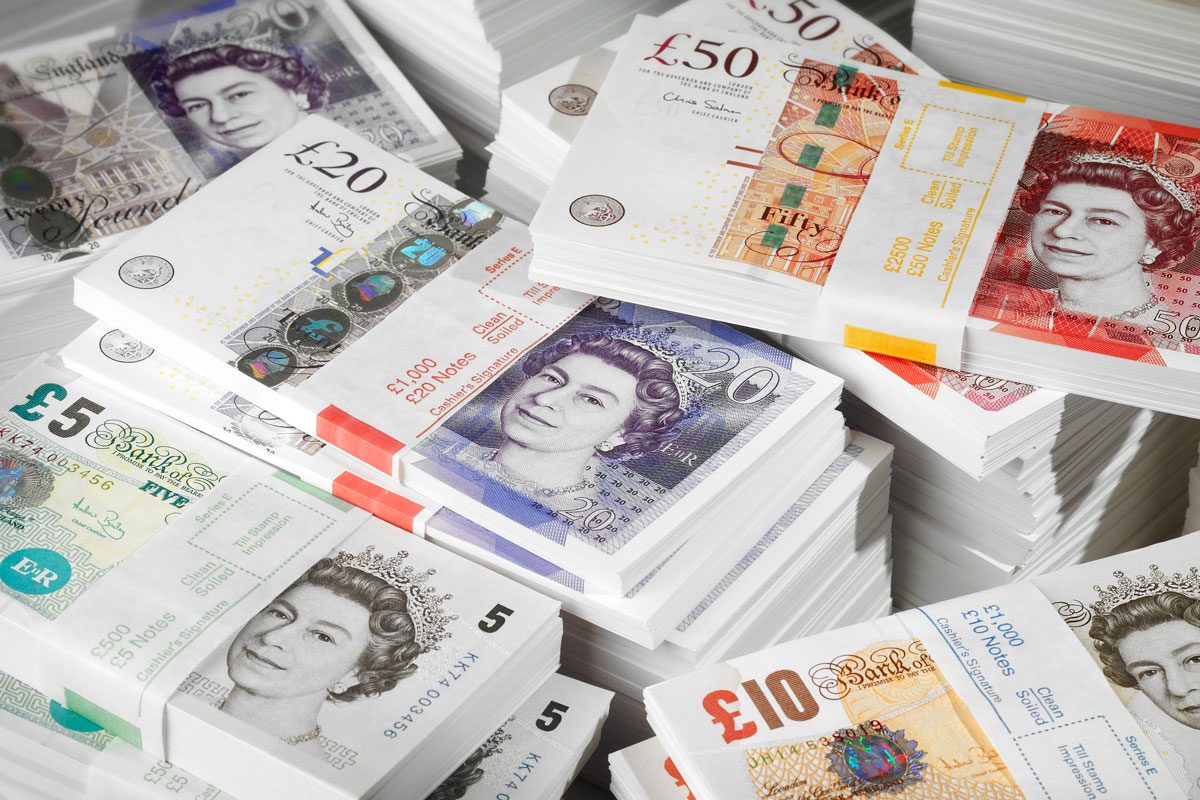Discover the weighty history behind this tiny abbreviation

Why Is Pounds Abbreviated as “lbs”?

Have you ever picked up a kettle bell at the gym and wondered why pounds is abbreviated as lbs.?
The word pounds contains neither the letter L nor the letter B, so where did this seemingly random abbreviation come from? To find out, I asked two linguists to weigh in on this hefty topic. Read on to learn where the lbs abbreviation originated.
Get Reader’s Digest‘s Read Up newsletter for more grammar, humor, travel, tech and fun facts all week long.
What does “lbs” stand for?
Like many things, the abbreviation lbs. can trace its beginnings back to the Roman Empire, or at least to its language.
“The phrase in Latin is libra pondo, which translates to ‘pound by weight,'” says Michael Adams, PhD, a professor of English and linguistics at Indiana University. “Pondo looks like pound. But it’s actually libra that means ‘pound,’ while pondo means ‘by weight.’ Could it have been any more complicated?”
“Libra, in fact, means scale in Latin,” Adams continues. (Think of the sign of the zodiac, associated with the constellation resembling a set of scales.) “But it ends up being transferred eventually to the thing weighed on the scale, which was a pound.”
Adams goes on to explain the lbs. abbreviation: “It’s the libra that we pick up on to make the abbreviation, rather than the pound. Who knows why, but that’s what we did historically. You’ve gotta get a shorter form somehow. And some shorter forms look better than other shorter forms.”
How did the “lbs” abbreviation make its way to modern times?
The abbreviation lb. entered English sometime in the 14th century, according to the Oxford English Dictionary (OED). “This is a time when writing was kind of a specialized activity because literacy was not a widespread thing,” says Grant Barrett, linguist, lexicographer and co-host of A Way with Words, a national radio show about language.
“A merchant would hire somebody on staff to be a scribe or a clerk,” Barrett continues. “You didn’t have reams and reams of paper around, so you were constantly abbreviating. It [lb] is an abbreviation for a word that you’re going to write a lot.”
According to Barrett, it wasn’t odd at all to use a Latin abbreviation: “This is a time when Latin is still widely used, as a language of international commerce and international religion. So it was not unusual for you to know the day-to-day language of your household but also have knowledge of Latin.”
The lbs. abbreviation persisted even as languages evolved and weights changed. “It makes a lot of sense when you think about it,” says Barrett. “Even today, there is a reason that we still use Latin in the sciences, because we still have that really strong need for that underpinning of this common understanding.”
Where else does the pound abbreviation show up?
In addition to representing weight, the pound abbreviation shows up in a few other places. Here are a few you may not realize.
British currency

The symbol for the monetary unit of the United Kingdom, the British pound sterling, is also derived from the word libra. The symbol (£) started out as an L with a line through it—though it looks fancier now. A bit of trivia: The pound sterling is the oldest active legal tender in the world, dating back over 1,200 years.
Italian money
Both the name and the symbol (₤) for the Italian lira are also connected to libra and the pound abbreviation. The lira was phased out when Italy adopted the euro as its unit of currency in 2002.
The pound sign
The symbol we use at the beginning of a social media hashtag (#) “comes from the letters lb with a line drawn through them,” says Barrett. (Go ahead and try it—I did as soon as he told me this fascinating fact.) “That’s why it’s called the pound sign.”
What other measurement abbreviations have similar origins?
The abbreviation oz for the ounce measurement has a similar origin. “It’s a leftover from Latin, says Barrett.”
Per the OED, the abbreviation oz comes from the Italian word onza, which was used in the Middle Ages to refer to a unit of weight. The word onza itself is derived from the Latin uncia, meaning “one-twelfth” (because an ounce is one-twelfth of a Roman pound).
“We see a little bit of history locked into these two letters, oz,” says Barrett. “It shows a period of time when Italian dominated international commerce.”
So, the next time you work out or order a pound of turkey at the deli, remember: The lb you see isn’t just an abbreviation—it’s a piece of linguistic history weighed down by centuries of tradition.
About the experts
|
Why trust us
At Reader’s Digest, we’re committed to producing high-quality content by writers with expertise and experience in their field in consultation with relevant, qualified experts. We rely on reputable primary sources, including government and professional organizations and academic institutions as well as our writers’ personal experiences where appropriate. We verify all facts and data, back them with credible sourcing and revisit them over time to ensure they remain accurate and up to date. For this piece, Jo Ann Liguori tapped her decades of experience as a copy editor to ensure that all information is accurate and offers the best possible advice to readers. Read more about our team, our contributors and our editorial policies.
Sources:
- Michael Adams, professor of English and linguistics at Indiana University Bloomington; phone interview February 14, 2025.
- Grant Barrett, linguist, lexicographer and co-host of A Way with Words, a national radio show about language; phone interview February 13, 2025.
- Oxford English Dictionary: lb
- Oxford English Dictionary: oz
- Investopedia: “GBP: History and Trading the British Pound Sterling”
[/single-card]























